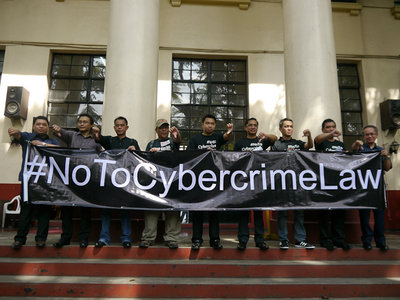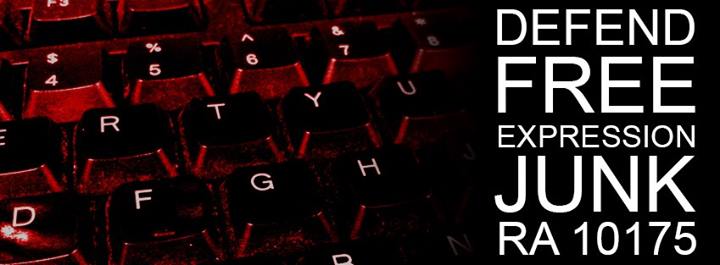High court set to rule on Cybercrime Law as groups press for repeal
Different advocacy groups, netizens and other sectors reiterated their opposition to the Cybercrime Prevention Law or RA 10175 as the Supreme Court is reportedly set to release its verdict on its constitutionality. “Cybercrime Law looks more like a recipe for a surveillance society rather than an instrument to fight so-called cybercrimes,” said Gladys Regalado, Deputy […]


Different advocacy groups, netizens and other sectors reiterated their opposition to the Cybercrime Prevention Law or RA 10175 as the Supreme Court is reportedly set to release its verdict on its constitutionality.
“Cybercrime Law looks more like a recipe for a surveillance society rather than an instrument to fight so-called cybercrimes,” said Gladys Regalado, Deputy National Coordinator of the Computer Professionals’ Union (CPU).
Regalado said that the law, which is under temporary restraining order, gives to the government powers to collect “real-time traffic data”. This sacrificies citizens’ right to privacy in pursuit of criminals including child pornographers who are already covered by existing laws.
“While the regime is bestowed with more powers to monitor its citizens, full disclosure of its operations to the people is absent. Misuse of public funds and humanitarian aid are public interest issues that are exacerbated with the difficulty to access information. Certainly, if there are people that needs monitoring it must be BS Aquino and his regime,” said Regalado.
Bagong Alyansang Mabayan (Bayan), one of the petitioners asking for repeal of the law, said it is reiterating its opposition to the law because “it violates free speech and the right to privacy of internet users.”
“It created the supposed crime of online libel, it allows for the warrantless collection of traffic data, and allows the take-down of websites even without a valid court order,” said Renato Reyes Jr., Bayan secretary-general. “Should the High Court uphold the objectionable provisions of this law, netizens face greater restrictions and online repression from a government that has a poor human rights record.”
Reyes said that revelations by American whistleblower Edward Snowden on the US National Security Administration internet spying indicate how dangerous online data collection can be to the civil rights of citizens.
“We shall remain vigilant today and await the ruling of the court. We are prepared to continue the fight for free speech and privacy on the internet,” he added.


